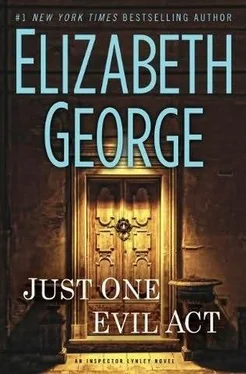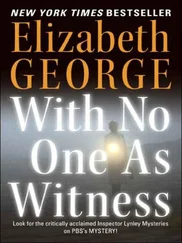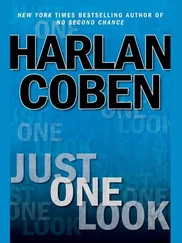She went to her desk and dropped into her chair. Uncharacteristically, she removed her simple necklace, dropped it on the desk, and rubbed the back of her neck. “Pinched nerve,” she told him. “Stress, I think. Well, it’s been a rough time.”
“I saw John in the corridor.”
“Ah. Well. He was taken aback. Who can blame him? He wasn’t to know he was being looked into, but honestly, what else could the man have been expecting?”
Lynley watched her. Her face was nothing if not completely what it ought to be. He said, “I’m not sure I understand.”
She continued to see to the tight muscles in her neck. “I wasn’t sure how it would work out, of course, once I assigned her to him and then reassigned her elsewhere, but I did think his antipathy towards both of us would do him in, which of course it did. She ran him on a merry chase all over London, and he ran after her. Doubtless there’s some fox-hunting metaphor that a man of your background might come up with—”
“I don’t hunt,” he told her. “Well, once, but once was quite enough for me.”
“Hmm. Yes. I suppose that’s in order, isn’t it? I daresay you’ve always been a traitor to your class.” She smiled at him. “How are you, Tommy?” she asked. “You’ve seemed . . . lighter these days. Have you met someone?”
“Isabelle, what’s going on, exactly? Hillier, CIB1, the DAC from police personnel management . . .”
“John Stewart’s been transferred, Tommy,” she said. “I thought you understood what I was talking about.” She returned her necklace to her neck and rebuttoned her blouse. She said, “Barbara’s brief was to suss him out. She would misuse her time left, right, and centre, and we would see if he misused his authority by setting up an unauthorised investigation of her. Of course, that’s exactly what he did as his reports to me proved from the very first. Naturally, ridding ourselves of the man entirely is a virtual impossibility, but CIB1, Hillier, and personnel management came to believe that a spate in Sheffield might be just the ticket for John. To learn how to operate effectively within the confines of a hierarchy, I mean.”
The release he felt was enormous. So was the gratitude. He said, “Isabelle . . .”
She said, “At any rate, Barbara played her part well. One would almost believe she was seriously out of order. Wouldn’t you say?”
“Why?” he said quietly. “Isabelle, why ? With so much at risk for you . . .”
She looked at him quizzically. “You’re confusing me, Tommy. I’m not at all sure what you’re talking about. At any rate, it’s not important, I suppose. The crux of the matter is that John’s been dealt with. The coast is clear, as they say, for Barbara’s return and for a private celebration for a job well done.”
He saw that she was not going to relent. She would have this her way or not at all. He said, “I don’t know what to . . . Isabelle, thank you. I want to say that you won’t regret this, but God knows that’s not likely.”
She regarded him evenly for a very long moment. For a flash he saw in her face the woman whose body he’d so enjoyed in bed. Then that woman was gone and, he reckoned, she was gone forever. Her next words made this so.
“It’s guv, Tommy,” she told him quietly. “Or it’s ma’am. Or it’s superintendent. It’s not Isabelle, though. I hope we’re clear on that.”
CHALK FARM
LONDON
She hadn’t returned a single call from Lynley. What the fallout was going to be was something she didn’t want to know just yet. So when she’d returned, she’d dragged herself into her bungalow and dumped the contents of her duffel onto the floor. She’d looked at the dismal collection of dirty clothing, and she’d decided that the next step was to lug it all to the launderette. She’d done so, sitting inside the place with its saunalike temperature and its unmistakable odour of mildew. She’d washed and she’d dried and then she’d folded. When it could no longer be avoided, she’d returned home.
The aloneness of the place seeped inside her skin. Given, she’d been alone for years, but it had been an alone she’d managed to deny through work, through the obligatory visits to her mother’s care home, where the poor woman’s mind was being taken from her by the tablespoonful, and through the unexpected but always welcome interactions with her neighbours. Those neighbours she didn’t want to think about, but when she passed by their flat with its closed and curtained French windows, it was impossible to think of anything else.
It hadn’t been a wrenching parting at the Pisa airport. That was the stuff of films. Instead, it had been something of a rush in which Azhar acquired tickets for, as things turned out, a flight to Zurich, from where he would begin the process of getting himself and Hadiyyah to Pakistan. This flight was soon to depart, and Barbara worried that, in these days of international terrorists, he would be denied a ticket by virtue of being Muslim, dark-skinned, and seeking to go one way only. But perhaps it was the presence of his charming daughter, clearly thrilled at the idea of a holiday in Switzerland with Dad, that obviated the need for further questions. His documents were in order and so were Hadiyyah’s and that, it seemed, was all that would be required. Meantime, Barbara was arranging her own return to London. Soon enough—far too soon—they were on the other side of passport control and ready to part.
Barbara said, “Well, right. That’s it,” and she gave Hadiyyah a one-armed hug. She said to her with a heartiness that she made every attempt to seem real, “Bring me a kilo of Swiss chocolate, kiddo. What else do they have for souvenirs? Swiss Army knives, I reckon.”
“Watches!” Hadiyyah cried. “D’you want a watch as well?”
“Only if it’s dead pricey.” And then she looked at Azhar. There was nothing to say, and certainly nothing that could be said in front of the little girl. So she said to him with a smile that felt like a rictus, “What an adventure it’s been, eh?”
He said, “Thank you, Barbara. For what’s gone. For what comes.”
Unable to speak past the stricture in her throat, she gave him a jaunty salute instead. She managed a “Later, then, mate.” He nodded and that was it.
She had the key to his flat. Upon her return from the launderette, when there was nothing more for her to do inside her own bungalow, she walked to the front of the villa and across the lawn and let herself inside the place, empty of him, empty of Hadiyyah, but somehow bearing the echo of them both. She wandered its rooms and ended up in the one Azhar had shared with Angelina Upman. Her belongings were gone, of course, but his were not. In the clothes cupboard everything hung neatly: the trousers, the shirts, the jackets, the neckties. On the floor were shoes, arranged in a row. On the shelf were scarves and gloves for winter. On the back of the door were ties. She fingered the jackets and she held them to her face. She could smell him on them.
She spent an hour in the sitting room that Angelina had so carefully redone. She touched surfaces of furniture, she looked at pictures on the walls, she fingered books on shelves. At last she sat and did nothing at all.
Finally, she knew, there was nothing for it. She’d gone to bed. At that point, she’d had eight calls from Lynley on her mobile and two more on her landline. Each time, as soon as she heard his well-bred baritone, she deleted the message at once. Soon enough, she would face the music she’d so jauntily claimed herself perfectly capable of facing. But not yet.
She slept better than she expected. She readied herself for work with more than her usual brand of care. She actually managed to put together something that a charitable fashionista might brand an ensemble . . . of sorts. At least, she eschewed elastic or drawstring waistbands in favour of a zipper and belt loops, although she certainly did not possess a belt. She also let slogan-bearing tee-shirts sit by the sartorial wayside. Her fingers did pause at This is my clone. I’m actually somewhere else having a much better time , but she concluded that—while true—the sentiment was largely inappropriate for work.
Читать дальше












